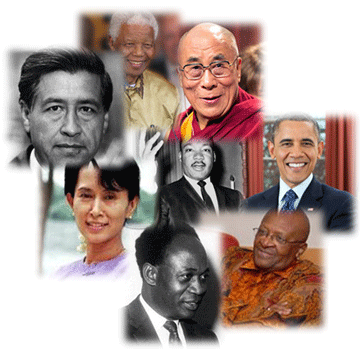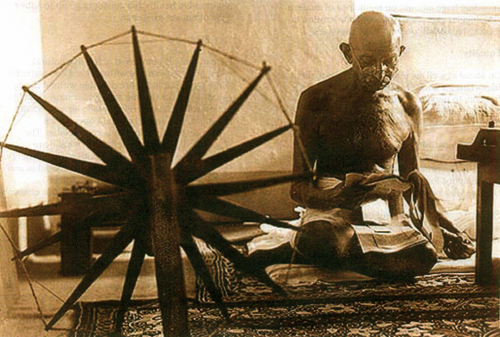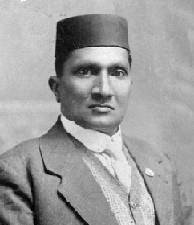Understanding GANDHI
By Nagindas Sanghvi*
Address at Lechayim of Jewish Services Association. Madison [WIS.] U. S.
I stand before you to speak on Gandhi who was shot dead some sixty years ago but who is still alive. He is still the most frequently mentioned individual in the world and is still the centre of the controversies some of which were raised by his actions and beliefs. Every year at least three or four books are written about him in some part of the world or other and he is being constantly discussed at several seminars and intellectual discourses all over the world. The date of his birth has been proclaimed as the Non-violence Day by the United Nations Organization. In our terror-stricken world of today, his teachings are even more relevant than they were when they were preached in the first half of the twentieth century.
The world to-day hails him as a Mahatma - a Great Soul - a Saint. Gandhi always resented the title and found it intensely painful. He never cared for any beatification and insisted that he was an ordinary man who was trying his level best for the realization of the Divine Presence.
Gandhi was not born a saint but chiseled himself into one by intensely agonizing experiments in austerity and discipline. He chose to call his biography “My experiments with Truth,” It is very difficult, if not impossible, to project Gandhi in few minutes. Sixty years after his death, he still remains a sort of enigma. The flood of copious literature on Gandhi does nothing to solve the mystery.
Unlike most of us, Gandhi continued to grow and change till the last moment of his life and he never worried about contracting himself. “In my search for Truth, I have never cared about consistency.” Like Emerson, he rejected consistency as the virtue of small minds. He was bold enough to proclaim that ‘If my readers find any inconsistency in my views, they should reject the older ones and believe in the later as my views might have changed.’
Mumbai Sarvodaya Mandal - Gandhi Book Centre – Gandhi Research Foundation
299 Tardeo Road, Nana Chowk Mumbai 400 007 MH India
Tel. +91-22-2387 2061 / Email: info@mkgandhi.org Web: www.mkgandhi.org
 Nonviolence is a philosophy, an existing theory and a practice, a lifestyle, and a means of social, political and economic struggle as old as history itself. From ancient times to the present times, people have renounced violence as a means of resolving disputes. They have opted instead for negotiation, mediation and reconciliation, thereby resisting violence with a militant and uncompromising nonviolence and respect for the integrity of all human beings, friends and enemies alike.
Nonviolence is a philosophy, an existing theory and a practice, a lifestyle, and a means of social, political and economic struggle as old as history itself. From ancient times to the present times, people have renounced violence as a means of resolving disputes. They have opted instead for negotiation, mediation and reconciliation, thereby resisting violence with a militant and uncompromising nonviolence and respect for the integrity of all human beings, friends and enemies alike.



